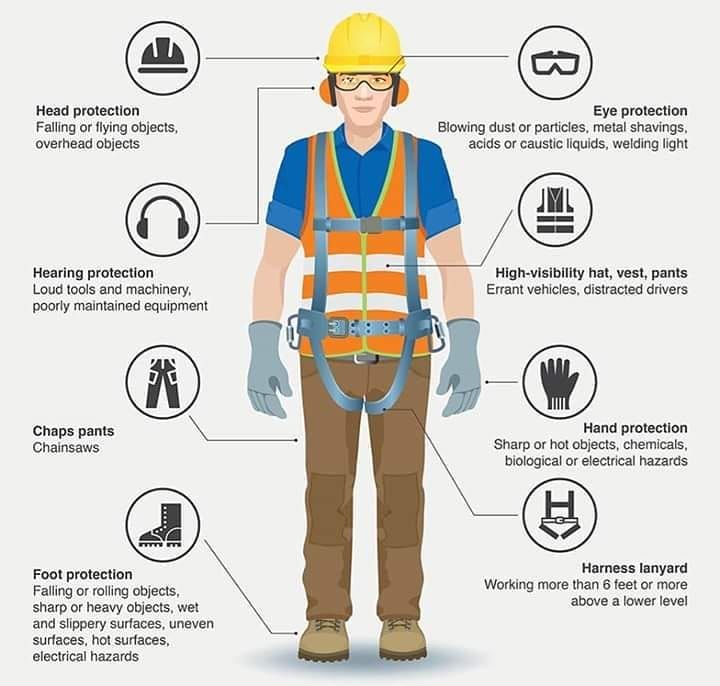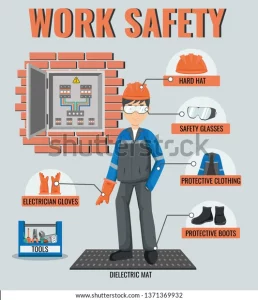Work Safety


What are some general safety tips for working with or near electricity?
- Inspect portable cord-and-plug connected equipment, extension cords, power bars, and electrical fittings for damage or wear before each use. Repair or replace damaged equipment immediately.
- Always tape extension cords to walls or floors when necessary. Do not use nails and staples because they can damage extension cords and cause fire and shocks.
- Use extension cords or equipment that is rated for the level of amperage or wattage that you are using.
- Always use the correct size fuse. Replacing a fuse with one of a larger size can cause excessive currents in the wiring and possibly start a fire.
- Be aware that unusually warm or hot outlets or cords may be a sign that unsafe wiring conditions exists. Unplug any cords or extension cords from these outlets and do not use until a qualified electrician has checked the wiring.
- Always use ladders made with non-conductive side rails (e.g., fibreglass) when working with or near electricity or power lines.
- Place halogen lights away from combustible materials such as cloths or curtains. Halogen lamps can become very hot and may be a fire hazard.
- Risk of electric shock is greater in areas that are wet or damp. Install Ground Fault Circuit Interrupters (GFCIs) as they will interrupt the electrical circuit before a current sufficient to cause death or serious injury occurs.
- Use a portable in-line Ground Fault Circuit Interrupter (GFCI) if you are not certain that the receptacle you are plugging your extension cord into is GFCI protected.
- Make sure that exposed receptacle boxes are made of non-conductive materials.
- Know where the panel and circuit breakers are located in case of an emergency.
- Label all circuit breakers and fuse boxes clearly. Each switch should be positively identified as to which outlet or appliance it is for.
- Do not use outlets or cords that have exposed wiring.
- Do not use portable cord-and-plug connected power tools if the guards are removed.
- Do not block access to panels and circuit breakers or fuse boxes.
- Do not touch a person or electrical apparatus in the event of an electrical incident. Always disconnect the power source first.





